Wirāṯaẗ : Political Authority as A Heavenly Grace
Wherever the Islamic World attained its pinnacle of ascendancies and successes, it was totally connected with values and instructions of the religion. The virtuous religious teachings guided the Muslims to the lustrous shores of victories, as they propagated those teachings wherever they set foot. For them, all worldly graces and blessings were granted only from the side of the Almighty Allah, for He is the supreme authority of the entire world.
The Wirāṯaẗ (the inheritance) which is mentioned in the Qur'anic verse “Indeed We wrote in the Psalms (Zabur) after the Reminder that My servants, the righteous, shall inherit the Earth (al-Anbiya 21:105), is an expression of heavenly grace. In this article, the author is checking the connectivity between the inheritance and political atmosphere on behalf of power and authority. The political behaviours and characters within Islam, and its applications will be clarified here.
The Resplendent Civilization
In the vista of Islam, the basic factors of power and authority are the righteousness and systemization. These are the criterions for ‘the inheritance of the earth’. From the Gibraltar in west, to the Indonesia in east, Muslims led the world to the zenith of civilizational characteristics. Because, the God made them the inheritors and the successors of those vast lands, for they were the righteous ones who distinguished in devotion, faith, morality, conduct, knowledge, science and worthy to the power.
Even the enemies admired the civilizational characteristics of Islam. In that time, Muslims were reputed for having the distinctive administrative features and systems. Oswald Spengler described this rise of Islam in the arena of political power as ‘the unmatched leap of human power’. Obviously, what kept Muslims upright for centuries in the political and social horizons of world is the commitment they had with the teachings of Islam. When they deviated from it, they became the slaves of ignorance, fear and backwardness.
Islamic civilization is a collective one open to all. Muslims and non-Muslims collectively enjoyed its unmatched features. The lands of Muslims became shelters for many communities in the world oppressed under the soles of cruel people. Here, it is undeniable that Muslims have the duty to emancipate the world from the ruptured order and destructive systems. As the first step to it, they have to extricate themselves from the bottom of obtuseness physically and mentally, being inspired by the promise of Allah ‘‘the righteous shall inherit the earth’.
Wirāṯaẗ as a Common Platform
The concept of Wirāṯaẗ stands as the vast arena that deals with various administrative models and ideas of Islam such as the Khilāfaẗ, Imāraẗ, Mamlakaẗ, Dawlaẗ and others. The political power of Islam that has existed across the world in various models and aspects are the results of Muslims’ efforts and endeavours dedicated for the cause of Allah.
The political philosophy of Islam emerged comprehending the beneficence of Allah to His servants. The scholars had directed the rulers to hold the teachings of Islam in their stances and decrees. For example, there is an account of Sultan Yavuz Selim in historical books, in that his tutor instructs him not to give any orders in the situations of rage. As the power is danger matter in the view of Islam for the one who holds it, the Qur’an and Sunnah are commanding them to clasp the humility and submission to Allah. Like that, there many cases in which sultans were deposed based on the verdict the chief judge (Qadi).
These matters do not declare that the rulers of Islamic world were the perfect ones. Neither the Umayyads, nor the Abbasids, nor the Ottomans were perfect rather they also had errors. However, they recognized the paramount value of unity, solidarity, law, order and religious teachings.
Scholarly Narratives of the Heavenly Grace
Many scholars of Islam have accorded diverse aspects and narratives to the ‘inheritance of the earth’. There are many of such narrations in the works of Islamic scholars like the books of Secret Codes (al-Asrar al-Jafriya).
There is a report from Yahya bin Aqib in an interpretation of Ibn Arabi’s Shajara an-Nu’maniyya authored by Sallah al-Khalidi. In that, Yahya says referring to the verse of Surah al-Anbiya “Indeed We wrote in the Psalms (Zabur) after the Reminder that My servants, the righteous, shall inherit the Earth’’, that the perfect state after of the companions of Prophet (PBUH) is the empire of Ottomans. He further states that their empire will rise and conquer many lands across the world for they have clasped on the values and instructions demanded by Islamic Sharia. This narrative is cited in the Khulasath al-Bayan of Allama Yusuf an-Nabhani.
In the myriads of scholarly works within the Islamic world, there are many descriptions of caliphs as the shadows of Allah the Almighty in the world. Even in the areas of Malabar, such views of Muslim scholars are famous in the religious books and others. Among those who proposed such views, Mampuram Sayyid Alawi Thangal and his son, the global citizen Sayyid Fadl Pookoya Thangal are notable. Apparently, Khilāfaẗ is a major matter comes under the Wirāṯaẗ. Caliph has sovereign power above all Muslim rulers as it stated by many scholars like Imam Ghazali and others.
In his work, Mu'id an-Ni'am wa Mubid al-Niqam, Imam Taj ad-Din as-Subki states that the handiest manner that heavenly graces are taken away is if proper thankfulness isn't always shown in one's words, deeds, and heart. It is essential to apprehend that God only is the supply of all benefits. Believers have to speak of his blessings and obey him. Al-Subkī instructs the caliph and other officials to guard the people's interests, enact justice among them and treat them fairly without showing any symptoms of partiality. These state officials should understand that, they're not superior to the subjects they govern. The power is given only by Allah. That is why, they have to implement his instructions and orders. The one who gave them the authority over people has the whole authority to dethrone them also. They must also remember to honour their responsibilities to God and uphold the rights of his servants. (Mona Hassan, Longing for The Lost Caliphate, p.118-119)
These types of narratives are insisting that all authority and power of people are the graces of God. Without His will, people cannot do anything. That is why, the people have to be submissive to Him at all levels.
A Tolerant Atmosphere
The political spectrum of Islam is collective. Muslims ruled outnumbered lands in the world with the mercy of Allah. For many centuries, diverse cultures and communities were attracted into the luminous shores of Islam. As the ideology of Islam is emphasizing on the creative dialogue of civilizations, Muslims accepted it in their political activities and missions.
Muslims protected distinct communities such as Christianity and Judaism, and their vibrant cultural and intellectual legacies. If the systematic authority of Muslims were not existed in those lands characterized by different living structures, many of those would have been perished under the ignorance and instabilities.
The Wirāṯaẗ, for it is the prime factor of political authority, is mostly attached to the aspects of tolerance and clemency. Even under the supreme authority of Muslims, they are commanded by Allah to preserve equality and justice among the subjects coming from various religions and cultural backgrounds.
References:
- Al-Aalusi, Abul Fadl Shihabuddhin, Ruh al-Ma’aani, Dar Ehia al-Turath al-Arabi, Beyrut (2000).
- Al-Barusawi, Ismail Hakki, Ruh al-Bayan, Daru Ehia al-Turath al-Arabi, Beyrut (2001).
- An-Nabhani, Yusuf bin Isamail, Khulasat al-Bayan, al-Matba'a al-Adabiyyah, Beyrut (1894).
- Gülen, Fethullah, The Statue of Our Souls Revival in Islamic Thought and Activism, The Light, Inc. (2005).
- Hassan, Mona, Longing for the Lost Caliphate, Princeton University Press (2016).
- Izetbegovic, Alija, ‘Awa’q an-Nahda al-Islamiya, Qatar Charity Association (1997)
Bio of Author:
Irshad Kuzhinholam
PG Research scholar at Darul Huda Islamic University (department of Quran and related sciences)
Founding executive editor at Turuq web magazine
Disclaimer
The views expressed in this article are the author’s own and do not necessarily mirror Islamonweb’s editorial stance.

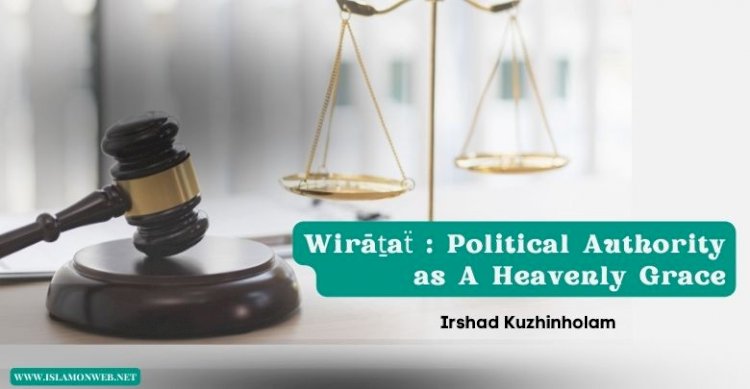



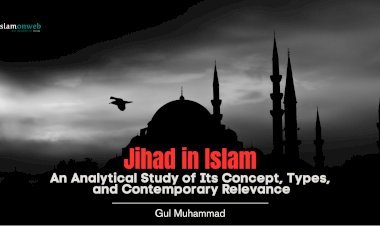

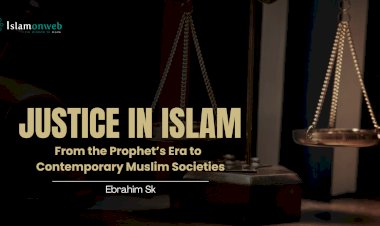
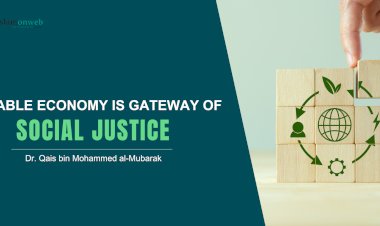
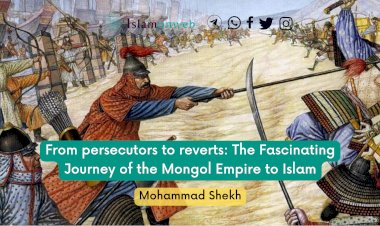














Leave A Comment